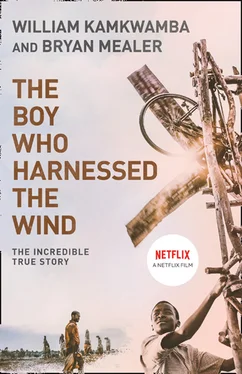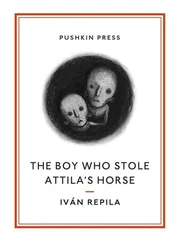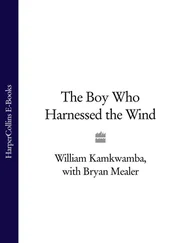I n JANUARY 1997, WHEN I was nine years old, our family experienced a sudden and tragic loss.
One afternoon while tending the tobacco with my father, Uncle John collapsed in the field. He’d been sick for several months but refused to see a doctor. That day, when my father helped him to the clinic near the trading center, they diagnosed him with tuberculosis and told him to go immediately to Kasungu Hospital. Uncle John’s pickup wasn’t running at the time, so my father ran to borrow a friend’s car. Before he left, he placed his brother’s bed mat under the cool shade of the acacia tree where he could rest. Uncle John’s wife, Enifa, stayed by his side and kept him company, and soon, many others from the village joined them.
Not long after my father left, I heard a loud commotion under the tree, then panic. It was Enifa who began screaming first. I looked over and saw her push through the crowd, gasping for breath. Others around the tree soon began to wail and cry, holding their arms to heaven. I then felt a hand on my shoulder. I looked up and saw my mother, her face twisted as if she’d bitten something sour.
“Your uncle John is no more,” she said. “He has passed.”
It was then my father returned with the car and learned the tragic news about his brother. Several men had to hold his body up.
It was the first time I’d ever seen my parents suffer, and the sight of it frightened me more than any magic ever could. My uncle John was dead and his body lay under the acacia. I’d never seen a dead person, but I was too afraid to go look for fear it would never leave my mind. Soon I saw Geoffrey emerge from the crowd. He was crying and walking in circles as if he’d lost his direction. I didn’t know how to behave, or what to say to him. I wanted to take my cousin and go away, down to the dambo where we could play and I could think. I didn’t like the way I was suddenly feeling. You know, in our culture, when a loved one dies, you’re expected to wail and cry to properly show your grief. I can’t explain why, but I didn’t feel like doing this. And after seeing everyone else, especially my father with his eyes red and face swollen from tears, I began to feel ashamed. So sitting there alone, I forced myself to cry, focusing on my dead uncle until I could feel the tears run hot down my face. Before they could dry, I went and joined my cousin to show my respect.
LATER THAT DAY, MY father’s two brothers, Musaiwale and Socrates, arrived from Kasungu, along with other family and friends who’d heard the news. Members of the church also came to Uncle John’s house and stayed all night and the following day. They pressed inside the two rooms and sang “This World Is Not My Home” while others quietly shuffled in and out to pay their respects. Uncle John’s body lay on a grass mat on the floor covered with a brightly patterned chitenje cloth. The next morning a simple wooden coffin arrived from Kasungu and the body was delicately placed inside, yet I never gathered the courage to enter the house myself.
January is the rainy season when the air is thick and hot. As more and more people arrived that morning, the house became crowded and sticky, and the sound of people wailing became too much for Geoffrey to handle. At one point, he stepped out looking even more confused than before, and walked over to where I sat.
“Cousin, what next? What will happen?”
“I don’t know,” I said. What could I say?
For the rest of the day, Geoffrey would go inside, look at his father’s body, then come back out and cry. He did this until it was time for the funeral to begin.
Chief Wimbe was out of town, so his messenger and bodyguard Mister Ngwata came to the house, along with other village headmen. For hours they sat under the acacia tree and discussed the funeral and what should happen with the family. When a powerful man dies, a lot of work needs to be done. In the event of a problem with the heir or transfer of property, it’s the chief who must decide an outcome.
Finally everyone poured out of the house and gathered around the tree. Mister Ngwata stood and addressed them on behalf of Gilbert’s father:
“We know this man has left behind some riches, and these treasures include his kids. We’d like to advise his brothers to take full control of these children. Make sure they finish their secondary education as they would have if their father had been alive. And in regards to the material wealth, we don’t want to hear of troubles in the family as a result. If anyone here wants to help this family, help the children with clothing and school fees.”
Another person stood up to speak. It was Mister Jonesi from Kasungu South, speaking on behalf of Geoffrey’s mother’s side of the family.
“This is a sad and tragic time even for our family,” he said, holding his hat. “We’re very concerned now. The deceased has left behind a wife, our beloved sister Enifa, and her four children. Our sister left our family long ago to join this village, so we ask the Kamkwamba side to please care for the kids and finish the job their dear father began. That’s all.”
My father and his brothers then lifted the coffin and placed it inside their friend Kachiluwe’s truck. They jumped inside to hold the coffin in place as the truck rolled toward the graveyard. The crowd then followed on foot. The graveyard was located down the trail near Grandpa’s village. It was just a small place under a grove of blue gums, with tall grass grown up around a few concrete headstones. My father’s two sisters, Fannie and Edith, were also laid to rest there.
Several men dressed in gum boots were already waiting when everyone arrived. These were the adzukulu, or grave diggers, who are hired to do the job of digging and burying. In Malawi, graves are not just six-feet-deep open pits like those dug in Western countries. Instead, every grave has a hidden compartment at the bottom—usually a smaller cubbyhole carved into the side of the pit—where the coffin slides in. It’s like having your own little bedroom in death. The purpose is to protect the deceased from the falling dirt, or really, to keep the family from seeing the falling dirt land on the coffin. For Uncle John’s grave, the adzukulu had dug the compartment at the bottom center of the hole—a kind of hole within a hole.
Grunting, the adzukulu carefully lowered the coffin with ropes, into the smaller compartment. It was the exact size of the coffin. One of the gravediggers then jumped in and covered the hole with wooden planks and a reed mat. With its new floor, the open grave now appeared empty.
I watched all of this happen as if in a fevered dream, head throbbing, a dull buzzing deep in my mind, as if the pressing sun overhead had revealed to me its voice. Once the grave was finally filled and covered with grass, I joined the mourners back up the hill. It was the loneliest feeling I’d ever felt.
FOLLOWING UNCLE JOHN’S DEATH, things became more difficult all around. In addition to the sadness we all experienced, my father had to care for the business alone. It was the start of the growing season, and my father tended the crops through until harvest. He paid all the seasonal workers and settled all the accounts. Then, heeding the advice of the chiefs, he handed the entire business over to John’s firstborn son, Jeremiah, who was twenty years old.
It’s custom for the firstborn son to inherit everything from his father, but it doesn’t always work that way. Often one of the brothers steps in and snatches control, leaving the family of the deceased at his mercy. This unfortunately happens all the time, and it’s the number one grievance brought before the village chiefs.
Jeremiah lived at home with Geoffrey and their mother and often helped on the farm, but it was well agreed that he didn’t like hard work. Although he was very smart, he’d never shown much interest in school and could often be found drinking in the boozing centers. My father felt terribly nervous about handing him the family business, but he wanted no trouble from chiefs or relatives.
Читать дальше












